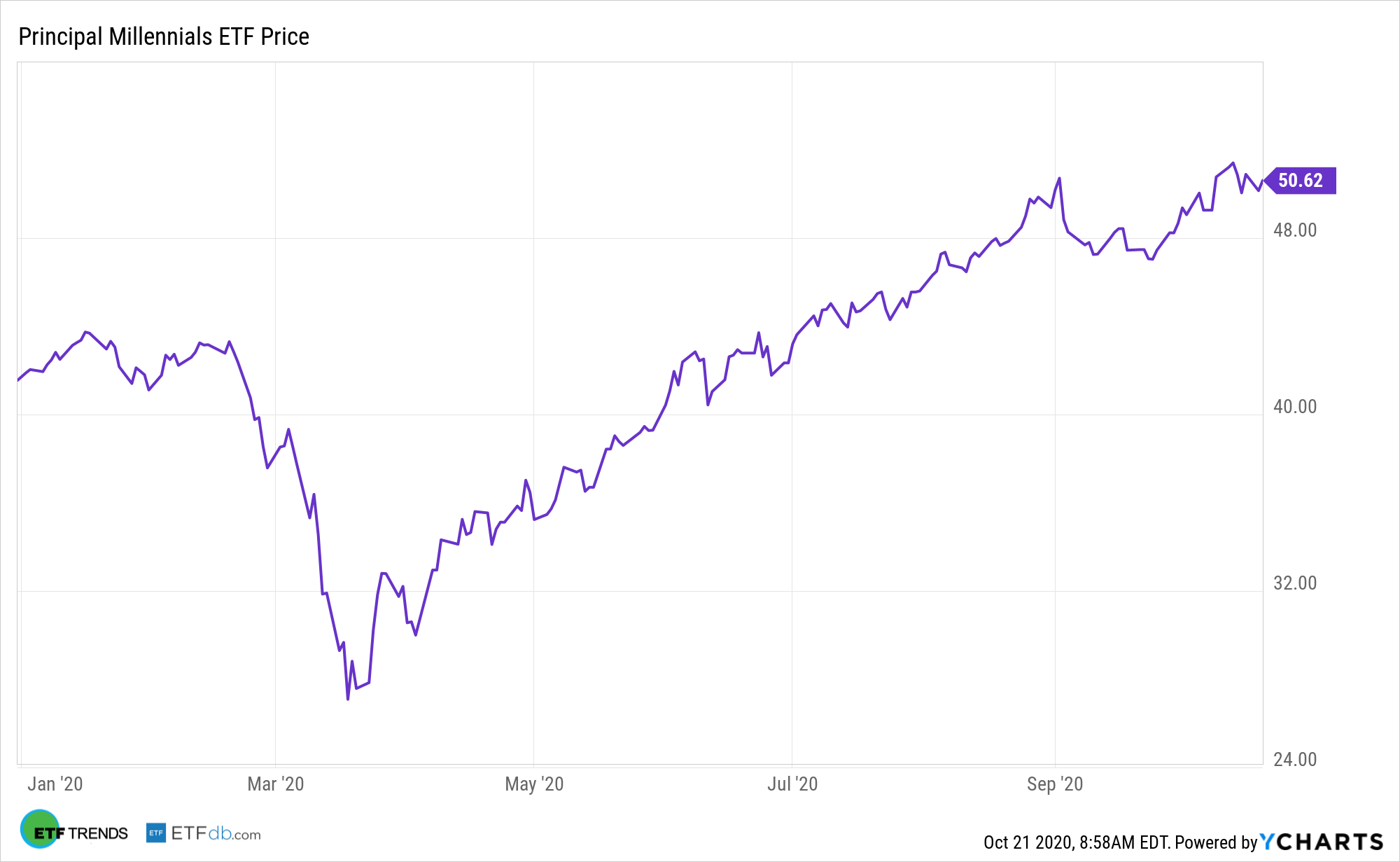The coronavirus pandemic is bringing about seismic shifts pertaining to how and where consumers spend money. Those changes could have positive long-term implications for exchange traded funds such as the Principal Millennials Index ETF (Nasdaq: GENY).
GENY tracks the Nasdaq Global Millennial Opportunity Index. This index seeks to capture the global spending and lifestyle activities of the largest generation ever, offering exposure to brand name companies specializing in social media, digital media, technology, healthy lifestyles, travel, and leisure. The companies will evolve over time as the spending patterns of millennials change as they age.
“The emergence of the coronavirus led to significant disruptions in individual and societal behaviors, leaving investors to wonder: Which of these changes will last? Which will revert back to normal? And how will those changes impact my investments?,” writes Morningstar analyst David Sekera.
GENY Captures Online Retail
The reason GENY merits a place in the conversation about a cyclical rotation is simple. Consumer discretionary is one of the four cyclical sectors, and GENY allocates 37.26% of its weight to that group, according to issuer data. That’s more than triple the S&P 500’s weight to that sector. Lower household debt also bolsters the case for GENY.
“Online sales had already been a rapidly growing proportion of retail sales for over a decade, but the trend accelerated this year as many consumers quarantined at home or found themselves staring at closed signs at their go-to stores,” according to Morningstar.
Recent data points indicate there are opportunities in the consumer discretionary and housing sectors. The sector is one offering investors more gains. Recent performers that stood out have also been those that were previously hardest hit by the coronavirus-driven fallout in the markets.
Other data points confirm the utility of GENY, not just in the current climate, but over the long haul.
“The intensification of online retail sales has emphasized what retailers with physical stores will need to stay successful throughout the pandemic: In addition to developing their own competitive online presence, they also must be able to provide such a combination of service, convenience, and experience that consumers will be willing to pay a premium,” according to Morningstar. “Those retailers that sell nondifferentiated products, have poor online execution, and are unable to provide a valuable in-store experience will struggle to survive in this new environment.”

For more on multi-factor strategies, visit our Multi-Factor Channel.
The opinions and forecasts expressed herein are solely those of Tom Lydon, and may not actually come to pass. Information on this site should not be used or construed as an offer to sell, a solicitation of an offer to buy, or a recommendation for any product.

